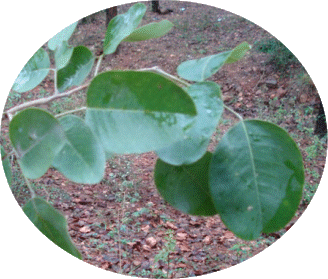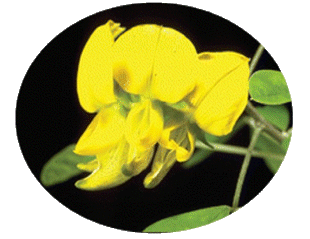|
Morphology
| |
|
|
|
Leaf
|
: |
 |
|
| |
|
Red
Sanders Leaf |
|
| |
|
|
|
|
Flower characteristics |
: |
 |
The flowers of the species are yellow, densely
arranged in simple or sparingly branched racemes. Flowering
occurs from February to April, after new leaves sprout.
Pods are formed rapidly but get ripened in next
February–March. Pods are oblilquely orbicular, 3–4 cm in
diameter, including the wing, and gradually narrow down into
a short stipe. There is only one seed per pod, which is
1–1.5 cm in length and reddish brown in colour[2]. |
| |
|
Red
Sanders Flowers |
|
| |
|
|
|
| |
|
|
|
|
Seed |
: |
 |
|
| |
|
Red
Sanders Seed |
|
| |
|
|
|
Morphological characteristics |
|
 |
Red Sanders is a
moderate-sized deciduous tree with clear trunk and dense
rounded crown. It attains a height of 10 m and a girth of
0.9–1.5 m under favourable growing conditions. The
blackish-brown bark is fissured and resembles crocodile
skin. The inner bark, when injured or cut, oozes red
coloured ‘santolin’ dye. The wood is extremely hard and dark
red in colour, with a specific gravity of 1.109. The leaves
are imparipinnate, petiolate, and alternate. They are simple
at seedling stage but trifoliate or rarely pentafoliate
later[1]. |
| |
|
|
Reference:
-
Agro-Techniques of Selected Medicinal
Plants: Agro-technique study carried out by P Regional
Station, National Bureau of Plant genetic Resources, Dist Niglat,
Nainital, Uttarakhand, and P RRL, CSIR, Itanagar, Arunachal
Pradesh.
|
|
|
|